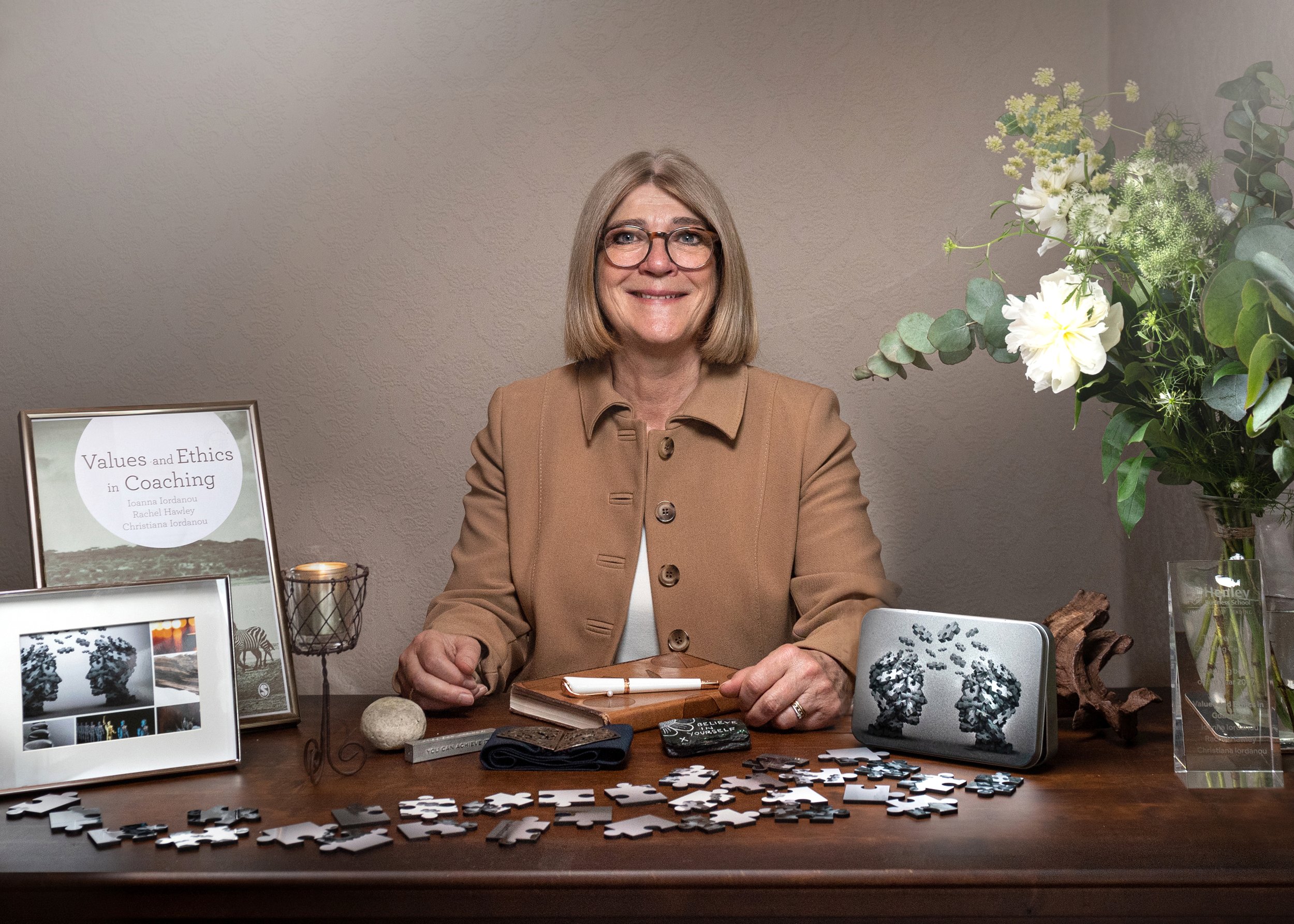Being a nurse is a huge part of who I am. Reflecting on my own story was formative guiding me to work in engagement, leadership and change.
I am passionate about cultivating collaborative relationships in healthcare.
I was awarded Doctor in Professional Studies for a piece of research undertaken at Sheffield Hallam University (England) – Relational Leadership in the NHS: how healthcare leaders identify with public engagement (2021).
Holding an MSc in Coaching and Mentoring, I am co-author of the first complete guide to exploring values and ethics, Values and Ethics in Coaching (2017). We were honoured to be awarded ‘Coaching Book of the Year’ 2017 from the Coaching Centre, Henley Business School.
With a professional background in nursing, and humbled to be Nursing Times 2022 Awards, Nurse of the Year finalist.
My story
Being a nurse is a huge part of who I am. My personal and professional values form a metaphorical mirror, acting as a moral compass. My fascination with collaborative relationships with the public, and embodiment of an identity for public engagement spanned over two decades of my professional practice. Reflecting on my own story was formative guiding me to work especially in involvement, leadership and change. I became interested in how the cultural and behavioural changes that were needed to effectively embed collaborative ways of working into everyday practice might be achieved. This is reflected in both my earlier writing (Hawley, 1997) and my doctoral research (Hawley, 2021). This led me to consider potential limitations of traditional academic boundaries within the disciplines of healthcare leadership and public engagement. Reflexivity can be struggle and can foster vulnerability. My research findings suggests that reflexivity influences how leaders identify with public engagement. My professional and learning practice has continued to evolve, moving from chronological accounts, to layering reflective accounts, towards more reflexive practice.
My identity, as a relational leader accounts for the interconnectivity between my personal, professional, and academic biographies. I am influenced by my training as a nurse, accommodating humanistic models of care alongside scientific and technological competences. I am also influenced by my own lived experience of healthcare. I value stories expressed narratively and visually, knowing the world as socially constructed. My story resembles a journey through which I have learnt to connect my interest in leadership and public engagement (collaborative relationships) together with storytelling (narrative interviews) artefacts (visualisation) to achieve a more holistic understanding of how leaders identify with public engagement.
Key landmarks on my journey
1982: Dream of being a nurse becomes a reality.
1991-1992: Ben remains my inspiration.
1995: My first public address, alongside Countess Mountbatten of Burma at the House of Commons on behalf of the Child Bereavement UK.
1997: My first professional journal publication in the Nursing Times: ‘Seasons of Grief.’
2011: MSc Coaching and Mentoring.
2017: My first book publication – co-author of ‘Values and Ethics in Coaching’ – awarded Coaching Book of the Year 2017 by Henley Business School.
2018: Three Minute Thesis, finalist and commended.
2020: The Choral Connection – singing for health and wellbeing.
2021: Awarded Doctor in Professional Studies for a piece of research undertaken at Sheffield Hallam University on Relational Leadership in the NHS: how healthcare leaders identify with public engagement.
2022: Finalist in the Nursing Times Awards 2022 for ‘Nurse of the Year’.
My reflexive lens
About halfway through my doctoral journey I had the opportunity to explore the nature of reflexivity more deeply when I undertook research for a book I was invited to co-author on values and ethics in coaching (Iordanou, Hawley and Iordanou, 2017). According to Finlay (2002) ‘the process of engaging in reflexivity is full of muddy ambiguity and multiple trails as researchers negotiate the swamp of indeterminable deconstruction, self-analysis and self-disclosure’ (p.209). Through my research on practising reflexively I discovered that becoming a reflexive practitioner helps us see our ‘self’ more completely and notice ethical dilemmas in research and professional practice from different perspectives. This underpins my professional practice, shaping my journey by enabling me to differentiate more clearly between reflexivity and reflection in my research. My experiences motivated me to cultivate the discipline of reflection within my daily practice. I have learnt that becoming a reflective practitioner helps us see ourselves more completely, and to see the ethical dilemmas we face in our professional practice from different perspectives, as though through another person’s eyes. Together these factors underpin my work on leadership and public engagement in healthcare shaping my journey to, and along my doctoral study. Reflexivity is not a linear process. The challenge is to develop our own personal mastery.
“My philosophy is ‘change comes from within’ – meaning focussing not on policy and process but rather focussing on self-discovery. Re-visiting our experiences through a variety of lenses to form holistic understanding is a way for discovering profound moments of self in leadership and public engagement practice.”












